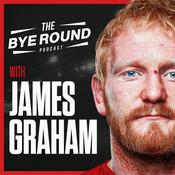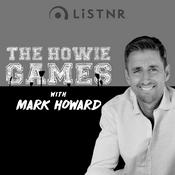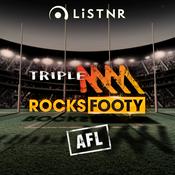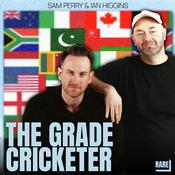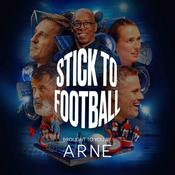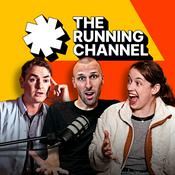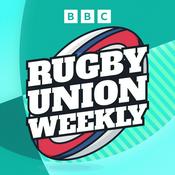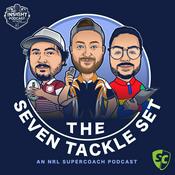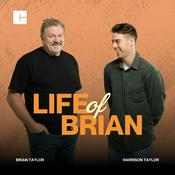303 episodes
Winter Olympics: Nutella "Doping" / Malinin's Traumatic Moments / Klaebo and Stolz Dominate / Ski Mo's Flop
20/02/2026 | 1h 15 mins.Become a Supporter - it's worth it!
Enjoying the Real Science of Sport? Show your support with a monthly pledge, become a Member of our Supporters Club, and get way more value from the discussions after the shows, in our world class community chat rooms!
Show notes
The Winter Olympics are a weekend from concluding, and so much has happened, it's been hard to keep up. But we try! In this show, we look at the Nutella doping defence of an Italian biathlete. We discuss the dramatic performance of favourite Ilia Malinin, who confessed to "traumatic thoughts" before his ill-fated free-skate performance in Milan.
There was no scoring controversy in that men's figure skating programme, but there have been in other events - Ice Dance and Big Air were affected by allegations of nationalistic bias, and then in the moguls, there was tie for gold, leading Ross to wonder about the credibility of a scoring system that uses subjective scoring to produce a tie down to the 1/100th of a point. Just share the gold, we reckon!
One athlete who has had no problems, either with pressure or opponents, is Johannes Hoesflot Klaebo, now the most decorated Winter Olympian ever, and basically unbeatable in shorter races. Can he deliver the 50km too? Another who has delivered on the promise is Jordan Stolz, though he was denied the 1500m speed skating gold. Reports of his cycling process have led to speculation that he could have a great career in cycling, should he fancy it. We discuss the barriers to that transition, and wonder how he might go about it.
Away from the Games, there's an indoor world record in the 800m, which augurs well for Keely Hodgkinson's longer term aspirations of the outdoor World Record, and which puts Femke Bol's aspirations into perspective. The head to head rivalry may be a season or two away - we explain why Bol needs more than a single season.
And Finally, we return to the snow, where Ski Mountaineering made its debut at the Olympics and left us feeling considerably underwhelmed and disappointed in the structure of the event.
Links
The Nutella defense - report on Rebecca Passler's doping case
The CAS 'non-decision' on Passler's case, but with a few details of what was being argued in her defence
A New York Times article on Ostarine and accidental doping ($ paywalled)
The research paper that arose out of the "sweat contamination" defence against an ostarine positive test
Article on Malinin's free skate drama
David Epstein's article on Malinin and choking
Jordan Stolz the cyclist: An article discussing his prospects on two wheels
Hodgkinson's 800m World Indoor Record
Hosted on Acast. See acast.com/privacy for more information.- If you love the podcast, and want to show your support, a monthly pledge on Patreon is the way! We'd be absolutely stoked if you did!
Show notes
Lesley McKenna is a pioneer in the world of action sports. A three-time Olympian (2002, 2006, 2010), she represented Great Britain on the snowboarding World Cup circuit, becoming the first GB snowboarder to win a World Cup event, and led the World Cup standings as the number 1 ranked snowboarder at the peak of her powers. Following her retirement, she transitioned into coaching and full time management, and was Team Manager of the GB Park and Pipe team from 2014 to 2022. As a veteran of six Olympic Games, she shares unique insights into the preparation, training and mindset of Winter Olympic athletes in the action sports.
She further expanded her understanding by embarking on a PhD with Leeds-Beckett University, that studied and explained how snowboarders and other action sports athletes develop skills, manage risk, and perform in high-pressure competition environments while staying true to the culture and authenticity of their sport This led to the development of a framework she called "The Risk Aesthetic Framework", which explains how action sports maintain meaning, creativity, and community in the competitive cauldron of the Olympic Games.
In this wide-ranging interview, Lesley draws from her experience and her research to share fascinating insights that ultimately reveal the science of "the stoke", and the hidden side of some of the most spectacular, jeopardy-filled sports in the world.
Links
Here is Lesley's website with more detail on her framework
The documentary Lesley recommended is called Pipe Dream - you can watch it on Netflix
Fancy a "backside air" - here's Lesley teaching you the way!
A documentary about Lesley with some footage of her in action
Hosted on Acast. See acast.com/privacy for more information. No Sports Advantage for Trans Women? / Khelif Defiant but in Denial / Bol's 800m debut
13/02/2026 | 1h 2 mins.The conversation continues on Discourse, for our Science of Sport Supporters. Join now with a small monthly pledge for access to the best sports science discussion community around
In the Spotlight this week, we revisit a recurring theme to explore whether a paper claiming no advantage for males who identify as women has any validity, and we cover some news from the world of sport and health.
17:31 Our main focus is on a systematic review, published last week, claiming that evidence suggests no physical differences and thus no sporting advantages in trans identified males. We explain why the paper is misleading, and how the authors and journal ignored very obvious flaws in the research to arrive at their conclusion.
1:31 We also discuss an interview given by Imane Khelif in which the Algerian boxer confirms what was already widely known about male advantage, as well as some surprising details about suppressing testosterone, and defiance and denial about male advantage.
36:44 In sports action, Femke Bol made an 800m debut indoors - we discuss the performance and what it tells us of her ceiling.
43:20 Serena Williams is making a return, but appeared in a Superbowl halftime advertisement to promote ozempic for weight loss, which triggered a wave of criticism and fear about the displacement of exercise, diet and responsibillty for weight loss. We consider the arguments.
50:52 Continuous glucose monitors are in the spotlight, after a range were recalled for providing inaccurate data, which has lead to death and injury in people misled by dodgy data. We discuss the matter in the context of how wearables have to, at a minimum, provide accurate information when decision making will change on the basis of that information.
And finally, a Lance Armstrong movie is imminent, and Hollie Davidson referees a Six Nations match at the weekend. We end with brief thoughts.
Links
The systematic review on transgender women
A previous systematic review, minus the meta-analysis, that reaches the opposite conclusion by focusing on non cross-sectional research
The Imane Khelif interview
The Serena Superbowl Advert
Story on the recall of continuous glucose monitors
Hollie Davidson interview ahead of her Six Nations debut this weekend
Hosted on Acast. See acast.com/privacy for more information.Winter Olympic Spotlight: Vonn('s gate) and risk / Cross Country Klaebo / Speed Skating Unfairness / Penis-gate
11/02/2026 | 53 mins.Become a Science of Sport Supporter, and get access to our Discourse chat community, and to our upcoming Real Science of Sport Live Chats. A small monthly pledge or donation on Patreon is all it takes
The opening five days of the Milan Cortina Winter Games have produced some spectacular performances and notable talking points. The Spotlight reveals some insights on those performances. We ask whether Lindsay Vonn's decision to race only 9 days after a ruptured ACL was a justifiable, correct one? Gareth has a new favourite sport - Cross-country skiing, dominated in spectacular fashion by Johannes Hofslot Klaebo and Sweden's women. Gareth is less enamoured with figure skating, but we discuss subjective sports and how coverage has improved to offer insights on scoring, and where it can continue to advance. We commend the coverage and footage from the Games, with revolutionary, spectacular drone footage. Speed skating is also in the Spotlight, and we share some insights that have been missing from the coverage, related to pacing. We also discover that some researchers suggest that the lane allocation offers significant advantages in some events.
And finally, we end on 'penis-gate', the story (or is that a non-story) about the search for ski-jumping distance through the most literal application of 'marginal gains' you can imagine.
That, and more, in the first of our Winter Olympic Spotlight shows.
Links
The story of ski jumpers injecting acid into their genitals for jumping gains
The Guardian's coverage of Lindsay Vonn's dramatic downhill
Our supporters weigh in on Vonn's decision to race, with some insightful comments and questions (supporters only - pledge above for access!)
Hosted on Acast. See acast.com/privacy for more information.- Professor Florentina 'Fleur' Hettinga loves speed skating. Not only has she competed as an athlete in the discipline, but she has also researched many elements of the sport, from the physiology of the top athletes to the technical expertise and equipment needed to be among the best. Based in Amsterdam, Hettinga is at the centre of Dutch speed skating excellence, serving as Head of Department of Human Movement Sciences at the Vrije Universiteit and as a professor at the Faculty of Behavioural and Movement Sciences. Hettinga talks Mike and Ross through the fascinating equipment used in modern speed skating, the technical skills that need to be honed to be competitive, and the unique, non-event-specific training that many of the top speed skaters employ. If you're watching the 2026 Milano Cortina Olympic Games, start here.
SHOW NOTES:
Fleur Hettinga’s research profile
The training insights of Nils van der Poel
Hosted on Acast. See acast.com/privacy for more information.
More Sports podcasts
Trending Sports podcasts
About The Real Science of Sport Podcast
World-renowned sports scientist Professor Ross Tucker and veteran sports journalist Mike Finch break down the myths, practices and controversies from the world of sport. From athletics to rugby, soccer, cycling and more, the two delve into the most recent research, unearth lessons from the pros and host exclusive interviews with some of the world's leading sporting experts. For those who love sport. Hosted on Acast. See acast.com/privacy for more information.
Podcast websiteListen to The Real Science of Sport Podcast, The Bye Round With James Graham and many other podcasts from around the world with the radio.net app

Get the free radio.net app
- Stations and podcasts to bookmark
- Stream via Wi-Fi or Bluetooth
- Supports Carplay & Android Auto
- Many other app features
Get the free radio.net app
- Stations and podcasts to bookmark
- Stream via Wi-Fi or Bluetooth
- Supports Carplay & Android Auto
- Many other app features


The Real Science of Sport Podcast
Scan code,
download the app,
start listening.
download the app,
start listening.


